April 22, 2024 – (Culver City, California) The U.S. FDA approved the interleukin-15 (IL-15) super agonist Anktiva (nogapendekin alfa inbakicept, NAI) developed by Altor BioScience, a subsidiary of ImmunityBio, in combination with Bacillus Calmette-Guérin (BCG) Indicated for the treatment of adult patients with non-muscle-invasive bladder cancer (NMIBC) who are unresponsive to BCG and have carcinoma in situ (CIS), with or without papillary tumors.
This approval was mainly based on the test results of QUILT-3.032. This was a single-arm, multicenter phase 2/3 clinical trial of 77 BCG-unresponsive, high-risk NMIBC patients with CIS (with or without Ta/T1 papillary disease) after transurethral resection. patient. Patients received Anktiva induction therapy and BCG therapy via intravesical instillation. Patients underwent cystoscopy and urine cytology every 3 months to assess their tumor status and were followed up for up to 2 years, with additional biopsies required within the first 6 months of starting treatment. The primary endpoints of the trial are complete response (CR) achieved at any time and duration of complete response (DOR). CR was defined as negative cystoscopy and urine cytology (biopsy in certain circumstances).
Analysis showed that the patient’s CR rate was 62% (95% CI: 51, 73). In addition, 58% of patients who achieved CR had a DOR of ≥12 months, and 40% of patients who achieved CR had a DOR of ≥24 months. The most common adverse reactions (≥15%) include laboratory abnormalities, including increased creatinine, dysuria, hematuria, urinary frequency, urgency, urinary tract infection, elevated potassium, musculoskeletal pain, chills, and pyrexia.
Anktiva (nogapendekin alfa inbakicept-pmln) (N-803) is an IL-15 superagonist. IL-15 plays a crucial role in the immune system by affecting the development, maintenance, and function of natural killer (NK) cells and immune T cells. Anktiva consists of an IL-15 mutant (IL-15N72D) that binds to the IL-15 receptor alpha/IgG1 Fc fusion protein. It binds to βγ T cell receptors and directly and specifically stimulates CD8-positive T cells and NK cells while avoiding stimulation of regulatory T cells (Treg). Compared with natural, uncomplexed IL-15, Anktiva has better pharmacokinetic properties in patients, can exist longer in lymphoid tissues, and exhibits enhanced anti-tumor activity. Anktiva was granted breakthrough therapy designation by the FDA in 2019 for use in combination with BCG to treat patients with non-muscle invasive in situ bladder cancer who had previously had a poor response to BCG.
Bladder cancer is a common cancer. Globally, approximately 430,000 people are diagnosed with the disease each year. People with non-muscle-invasive bladder cancer have cancer cells that are in the bladder or have grown into the lumen of the bladder, but have not spread to muscle or other tissues. Patients with this cancer account for 75% to 85% of all bladder cancers. BCG is the standard therapy for treating these patients, and although effective, patients treated with BCG have high rates of relapse and progression. In this case, the recommended treatment is complete removal of the bladder (cystectomy) to prevent the cancer from spreading.


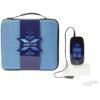




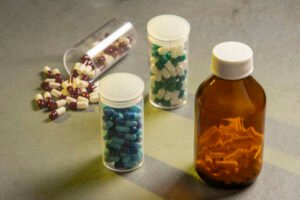


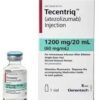
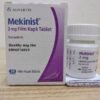


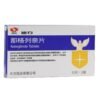
Leave a reply